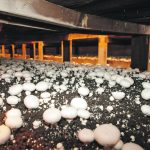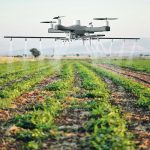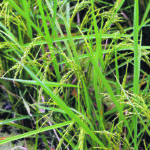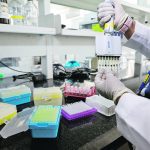If I was asked to assign a grade to the year that was, 2022 would likely be a C, possibly a C-. There were a few bright spots, but for the most part, the year was dominated by demoralizing news. Russia’s invasion of Ukraine, rampant inflation, soaring fuel prices, constant food price increases and the […] Read more
Stories by Stuart Smyth

Mushrooms reflect farming’s diversity
Mushrooms are part of many of our favourite dishes. Whether they’re served as an appetizing stuffed mushroom cap or sliced into sauces, mushrooms are versatile ingredients. They are often used as an alternative to meat and are capable of being barbecued and served identical to hamburgers. Low in fat and carbohydrates, mushrooms offer a healthy […] Read more

Plants’ carbon role not to be ignored
Humans and plants have a beneficial relationship: we breathe out carbon, which through photosynthesis, plants use for growth and in this process they emit oxygen. A plant in the shade may or may not have a reduced rate of photosynthesis, depending on numerous factors. But if plants photosynthesize less in the shade, does that mean […] Read more

Steps needed to prevent export bans
Bans on exported food products seem to be announced on a near-monthly basis. In December 2021, Argentina announced it would limit the amount of wheat and corn being exported. In April, Indonesia’s government announced something similar, banning the export of palm oil. Despite being the world’s largest exporter of palm oil, the ban was implemented […] Read more

Reconsider drone sprayer regulation
The harmonization of regulations between neighbouring countries makes everything easier, and chemical application technology looks like a simple one to match that of our southern neighbours. Historically, sprayers were designed with a boom containing nozzles that were evenly spaced, allowing for chemicals to be consistently applied across the entire field. As advances in electronics, robotics […] Read more

Ag research investment must diversify
For much of the latter half of the 20th century, Canada was referred to as the “breadbasket of the world” due to the high number of wheat production acres and export volumes. However, during this time many farmers relied on short crop rotations that included summerfallow, resulting in greater environmental impacts than current crop production […] Read more

Regulators must find ‘Goldilocks Zone’
It’s often said that there’s a fine line between too much and not enough of many things in life and society. Astronomers who search for potentially habitable planets have coined the phrase “Goldilocks Zone” as the range of distance in which such a planet could feasibly exist. The Goldilocks Zone concept could also be applied […] Read more

Biotech regulation should be relaxed
At what point do regulatory experts possess sufficient knowledge on innovative technologies and their potential impacts, both beneficial and adverse, that they decide regulation is no longer required? Ideally, we would be able to have products seamlessly enter the market that required no regulatory oversight. The reality of this is unlikely because one role of […] Read more

Plenty of blame for biotech scepticism
Biotechnology began to be applied to crop agriculture in the early 1980s, with the first commercialized products coming to market in the mid-1990s. Biotech-developed crops, fruits and vegetables have been approved for production and consumption, following more than 4,400 risk assessments by government scientists in more than 70 countries. Over the past 25 years, no […] Read more

Greenpeace’s failure on Golden Rice
In late July 2021, the Philippines became the first country on the planet to approve Golden Rice for production and human consumption. Twenty years ago when the Golden Rice technology was licensed to Syngenta, the approval for production and consumption was expected to occur within a handful of years. It was widely thought that Golden […] Read more




